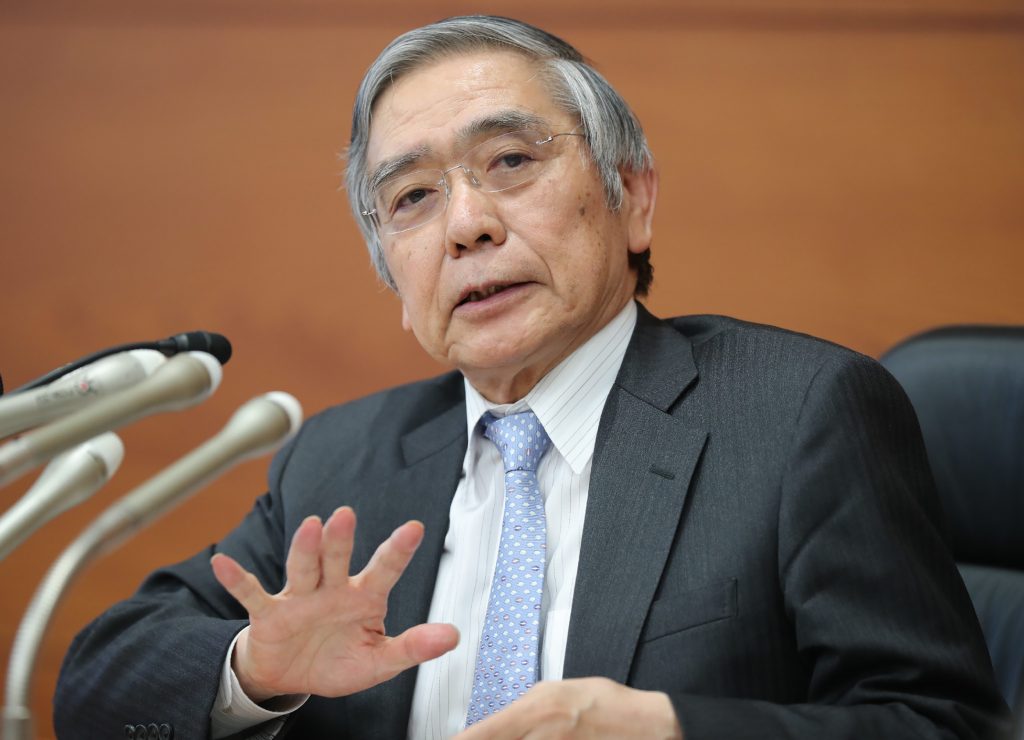
- ARAB NEWS
- 06 Jul 2025

The Bank of Japan may be close to losses on its 29 trillion yen ($279 billion) stock portfolio, analysts say, raising concerns about its credibility and the sustainability of its hyper-easy monetary policy.
Japan shares plumbed three-year lows on Tuesday, but erased losses on hopes of more policy support to mitigate the economic impact of the coronavirus outbreak.
The Nikkei average fell to as low as 18,891, its lowest since April 2017, before ending up 0.86% at 19,867.
The precipitous fall spooked investors as the Nikkei dropped below 19,500, a level that market players consider as the average cost of the BOJ's massive stock purchase since 2013.
Responding to questions in parliament, BOJ Governor Haruhiko Kuroda said the average cost of its exchange-traded fund (ETF) purchases was equivalent to around 19,500 in the Nikkei.
"A consistent drop of the market below this level would put into question not just BOJ's credibility but actually undermine its capital base," said Jesper Koll, a senior adviser to WisdomTree.
The BOJ's total net assets were 3.810 trillion yen ($36.6 billion) as of September, an amount that can be wiped out if Japanese stocks fall a further 14%. The BOJ's before-tax net income in the last financial year was 1.074 trillion yen.
"If stock prices fall another 20%, which is by no means unrealistic given that the Nikkei had fallen 30% from its peak in 2016, the BOJ will suffer a loss of almost 6 trillion yen," said Norihiro Fujito, chief investment strategist at Mitsubishi UFJ Morgan Stanley Securities.
"There has been some discussion about the side-effects of the BOJ's buying, including its impact on market liquidity or corporate governance. But for me the biggest issue of all is this - what to do with losses if that happens," he said.
The BOJ did not immediately respond to a request for comment.
Unlike commercial banks, a central bank is not a profit organisation and does not have capital requirements.
Historically, central banks have had negative net worth without major economic consequences, including the Bundesbank of then-West Germany in 1977-79, analysts say.
Still, some analysts say mounting losses at the BOJ could erode public support for the its aggressive asset purchases, which has been central to Prime Minister Shinzo Abe's economic policy.
"Coupled with likely huge losses we can expect in the government pension investments, this could become a political issue," said Hidenori Suezawa, analyst at SMBC Nikko Securities.
"After all, few people have complained because there were profits. It will be a different story if the public has to bear the cost."
The cost is not limited to mark-to-market losses, said Shingo Ide, chief equity strategist at NLI Research Institute. According to his estimates, as the BOJ's ETF portfolio balloons, the BOJ pays about 45 billion yen a year in fees.
"The BOJ will be asked to examine whether it had to spend that much money and if all of its buying was necessary," he said. "The fact that the BOJ is almost suffering losses on its ETFs shows you can't support the stock market by monetary policy."
In the near term, however, the BOJ is likely to double down on its stock buying, as it was the only effective policy tool left for the central bank, analysts said.
The BOJ has already fallen well short of its bond buying target because it has already gobbled up about a half of the market and deeper cuts to its negative interest rates will hurt bank profits and pose risks to the financial system.
"For the moment, buying more stocks is the BOJ's only option and it will likely do so if it needs to ease policy," said Mitsubishi UFJ's Fujito.
"But looking ahead, loss of credibility in the BOJ is no longer a hypothetical issue. It now seems like a real risk."
Reuters